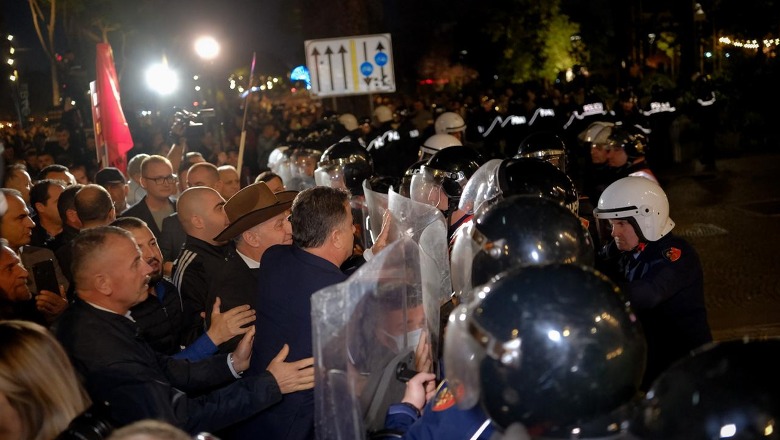Albanian opposition concludes protest

On Tuesday, the opposition carried out another protest under the banner of civil disobedience, blocking six major national highways for three hours. The participation in the protest was significantly lower than in its previous, October 7 protest. Fortunately, despite some attempts by protest leaders to provoke tensions, there was no violence.
Why is this important: For the past month, the opposition has framed these protests as a citizen-led movement against bad governance. However, the primary demands have focused on releasing opposition leaders, Sali Berisha and Ilir Meta, both facing serious corruption charges. Berisha is under house arrest for passive corruption, while Meta faces multiple allegations of corruption. Public sentiment has increasingly viewed these protests as a political resistance against the judiciary, specifically targeting SPAK, the anti-corruption body. This sentiment is fed by constant attacks against the justice reform by opposition leaders who claim that the justice institutions are controlled by the prime minister.
Meanwhile, international bodies, including the EU, continue to praise Albania’s justice reforms and institutions such as the Special Structure Against Corruption and Organized Crime (SPAK) for their role in tackling impunity. They have highlighted the fight against corruption as one of Albania’s major successes in its EU integration process. Furthermore, these efforts enjoy overwhelming popular support, placing the opposition increasingly at odds with the popular sentiment as elections approach.
What happened: The protest mirrored an earlier demonstration on October 7, where opposition supporters blocked Tirana and attacked public institutions with Molotov cocktails. On Tuesday, protesters blocked vital roads linking the north and south of the country, again for three hours. However there were no attacks and no violence, despite the menacing statements that preceded the protest.
What was the outcome: Thousands of citizens, including emergency services like ambulances and fire trucks, were trapped on the blocked roads. Sporadic tensions arose as some tires were set on fire, and minor confrontations occurred between protesters and police officers. Law enforcement urged protesters to unblock the roads, reminding them that blocking public roads is a criminal offense. Article 293 of Albania’s Penal Code states that obstructing road traffic is punishable by fines or up to three years in prison.
What’s next: The opposition’s next moves remain uncertain. Although there have been threats of escalating protests, shrinking public support and the disruption caused to everyday life make it unlikely that these actions will advance their objectives. In fact, international sentiment is turning increasingly critical of such tactics. These external opinions carry significant weight in Albania, where many citizens already harbor deep skepticism about the opposition’s true intentions.


